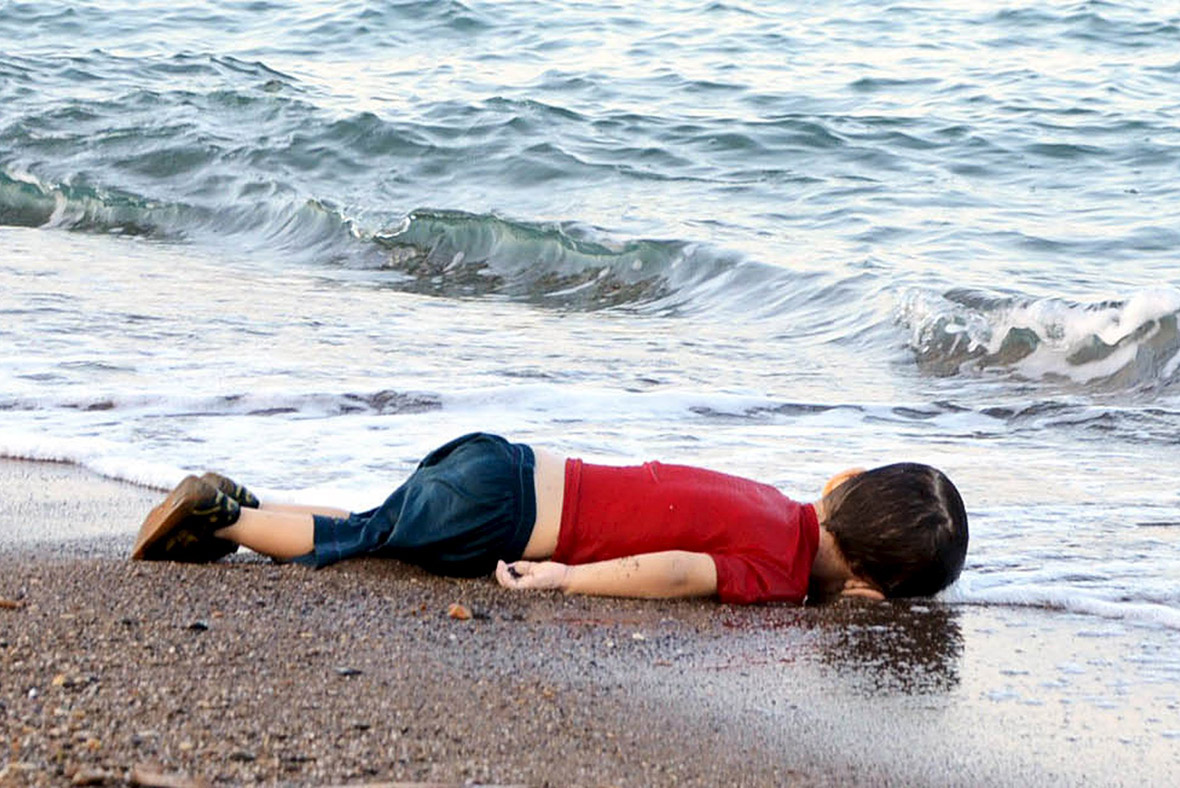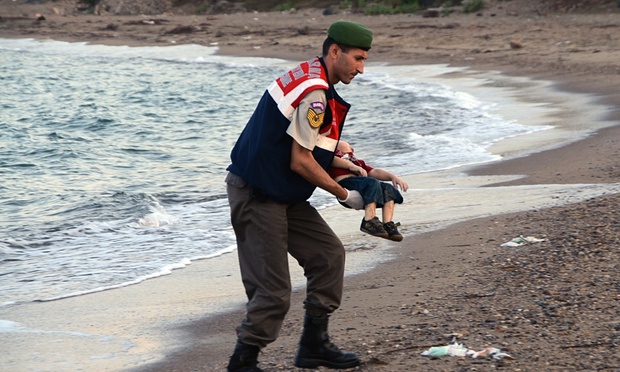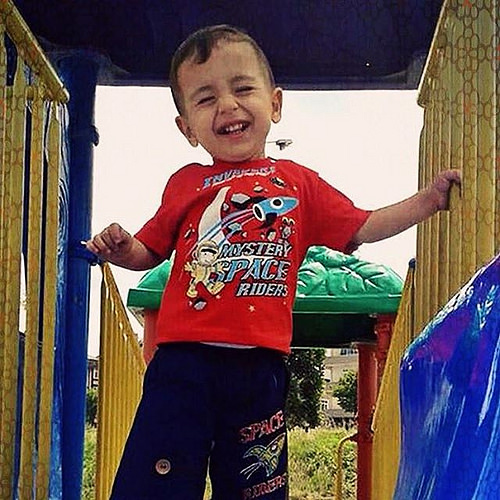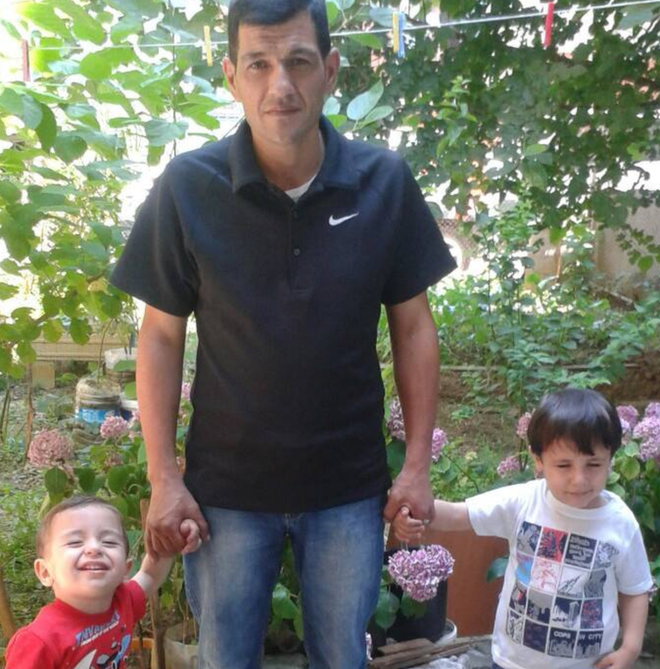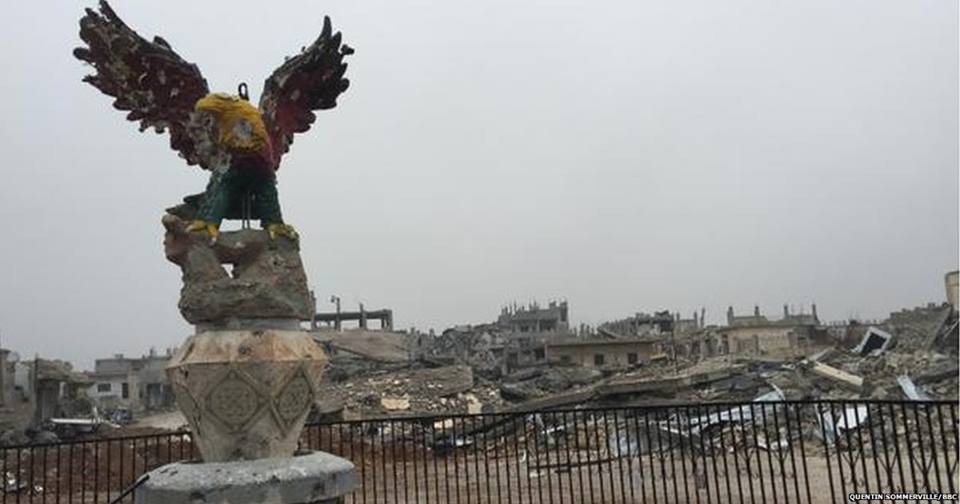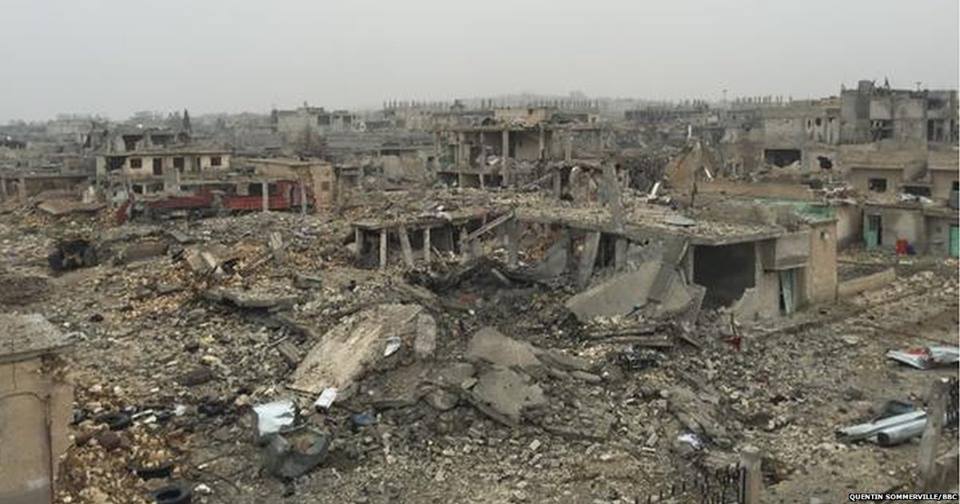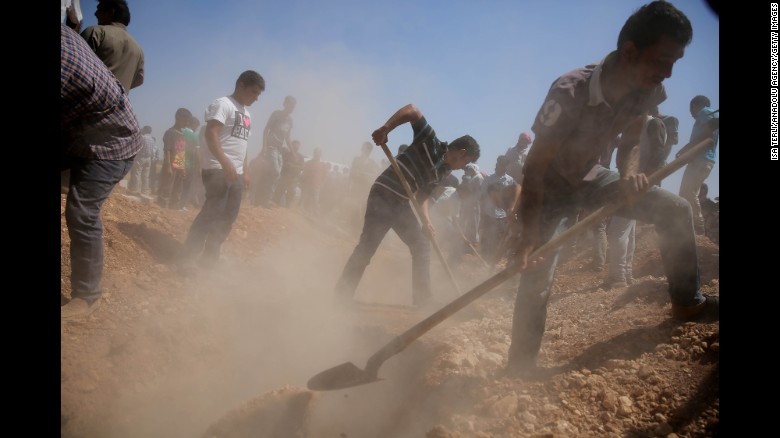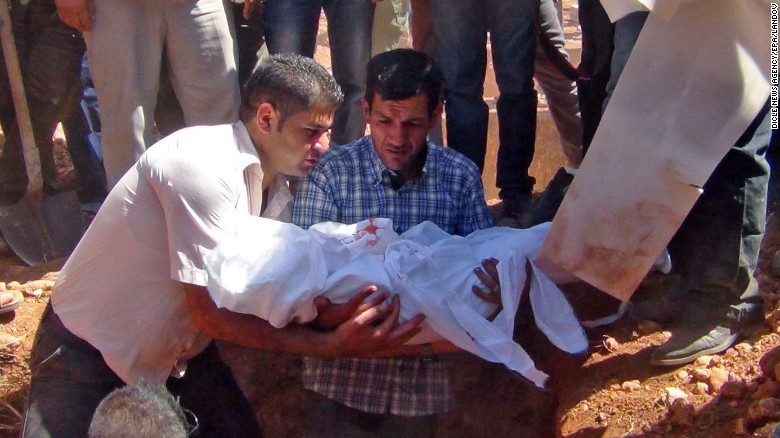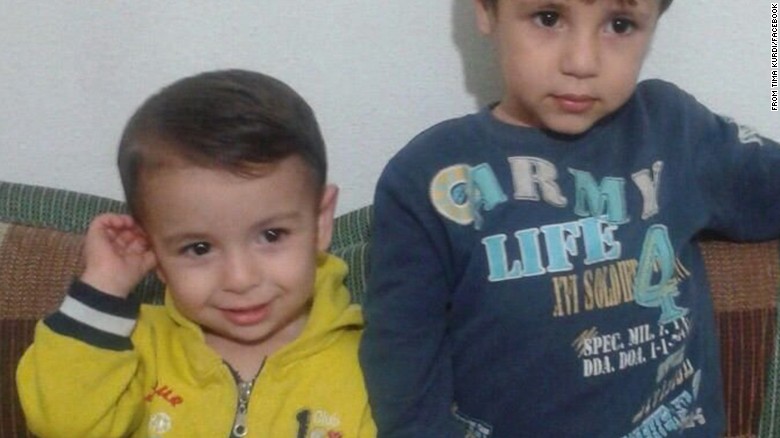Everything You Should Know About The 3-Year-Old Drowned Syrian Boy Aylan Kurdi
His 5-year-old brother reportedly died on the same boat.
In the wee hours of the morning of 2 September, Nilüfer Demir, a photojournalist saw something so chilling on the Turkish shoreline it left her petrified. For there lay the lifeless body of Aylan Kurdi, the 3-year-old Syrian boy, photos of whose — his face into the sand at shore's edge — would go on to prompt outrage and bring a much needed international attention on the humanitarian crisis of Syrians trying to flee their war-torn country, often with tragic consequences.
This is the story of one such tragic consequence, of the life of Aylan Kurdi, of his unnecessary death and the need to fill in the gaps behind the harrowing images that have put pressure on officials to do more to address the unrelenting flow of refugees and migrants.
The photo of Aylan — in a red T-shirt, blue shorts and Velcro sneakers, found face-down on a Turkish beach — first appeared in Turkish media, sparking global outrage and widespread distress. It was widely shared on Twitter with the hashtag, "KiyiyaVuranInsanlik" — Turkish for "Humanity Washed Ashore."
The Turkish shoreline was not the place Aylan or his elder brother and mother should have died: his family had successfully escaped Syria, tried Turkey and, in the form of the Greek isle of Kos, freedom now beckoned from across the sea.
For Aylan, his brother Ghalib, their father Abdullah and mother Rehan Kurdi, the dream of a life in Canada to reunite with Abdullah's sister Tima, a hairdresser in Vancouver, far from war and civil strife, had never been nearer.
But then came the waves: a sea so fierce it overturned their cramped plastic dingy.
"I took over and started steering," said Abdullah Kurdi while speaking to The Guardian. "The waves were so high and the boat flipped. I took my wife and kids in my arms and I realised they were all dead."
"All I want is to be with my children at the moment."
He would try to take his loved ones back for burial in Kobani, he added, the family’s original hometown on Syria’s border with Turkey where Islamic State (ISIS) insurgents engaged in fierce fighting with Kurdish forces earlier this year.
According to a report in The Guardian:
Kurdi said that the boat in which the family had been travelling had started taking on water about 500 metres from the shore and that, despite his best efforts, he had not been able to hold on to his 35-year-old wife and two sons. “I was holding my wife’s hand,” he told the Turkish news agency Dogan. “But my children slipped through my hands. It was dark and everyone was screaming.
“I tried to swim to the shore with the help of the lights but couldn’t find my wife and children once I was there. I thought they got scared and ran away. When I couldn’t find them in our meeting point in the city [Bodrum] where we normally meet, I went to the hospital. And got the bad news.”
“My children were the most beautiful children in the world. Is there anybody in the world for whom their child is not the most precious thing?” Kurdi said. “My kids were amazing. They woke me every day to play with me. What is more beautiful than this? Everything is gone. I would love to sit next to the grave of my family now and relieve the pain I feel.”
Aylan's family had fled Kobane. The BBC's Middle East Correspondent Quentin Sommerville visited Kobane back in January. These pictures show the devastation of the place the child and his family had left in search for a better life:
The Kurdis had been living in Damascus until the early stages of the Syrian conflict in late 2011. When the violence in the city escalated, they relocated back to Makharij village, 25km outside the northern town of Kobane, pictured here.
Image via BBCWhen Kobane became a flashpoint in the conflict between Kurdish fighters and Islamic State militants in late 2014, the family fled along with tens of thousands of others for Turkey.
Image via BBCAccording to reports, unlike other refugees heading for Europe, Aylan's family had lived in Turkey for three years before deciding to repatriate to Canada, where Abdullah's sister had for several years attempted – and failed – to sponsor their asylum claim
Speaking to the Canadian media, Tima Kurdi, a hairdresser who has lived in Vancouver for the past 20 years, hit out at the failure of western states to provide legalised safe passage for refugees, claiming it was solely to blame for the drownings.
She said the family’s application had been rejected in June, a claim contradicted by the Canadian authorities, who said the application “was returned as it was incomplete as it did not meet regulatory requirements for proof of refugee status recognition”.
Kurdi said: “I was trying to sponsor them and I have my friends and my neighbours who helped me with the bank deposits, but we couldn’t get them out, and that is why they went in the boat. I was even paying rent for them in Turkey but it is horrible the way they treat Syrians there.”
She posted a Facebook tribute with pictures of the two small boys, saying: “My deepest condolences to my brother’s family who suffered a tragic death in search of a better life. Where is the humanity in the world? They did not deserve this. My heart is broken. Rest in peace Angels.”
Aylan’s aunt makes an emotional appeal to refugees planning to cross Mediterranean to think again.
Image via The GuardianAylan's family had made three previous attempts to leave Turkey before their fourth and final, according to the BBC. On the fourth attempt, they worked with people in Izmir to get them to the coast and then on to Kos by boat.
They are believed to have paid USD4,400 for the crossing - several times the cost of an airfare to Canada for the whole family.
Under darkness, the family's boat was pushed out into the waves. Within minutes they were in trouble. In heartbreaking detail, Abdullah described the moment his young family drowned. He said he intends to fly his family to Istanbul and then home to Kobane, where he will bury them.
"It is too late to save Abdullah's family," said Tima. "Please let's use our collective voices to make change and demand that our world leaders take action now to pass emergency refugee measures. Let's put an end to this suffering. Our hearts have been broken."
In Britain, where just 216 Syrian refugees have been accepted so far, reaction to the photo put Prime Minister David Cameron on the defensive. "We will do more," he said on Thursday.
The United Nations estimates that some 2,500 people have lost their lives on risky sea journeys as they try to escape violence and repression at home. Like all numbers associated with the migration crisis, this one can be hard to fathom. But the message of Aylan Kurdi's photo seems clear enough: The world needs to do better in addressing migrants' needs, safety and dignity.
"We really need a wake-up call that children are dying, washing up dead on the beaches of Europe, because of our collective failure to provide them safe passage," Bouckaert says. "People fleeing Syria are legitimate refugees, and they should be welcomed in Europe and the rest of the world."
